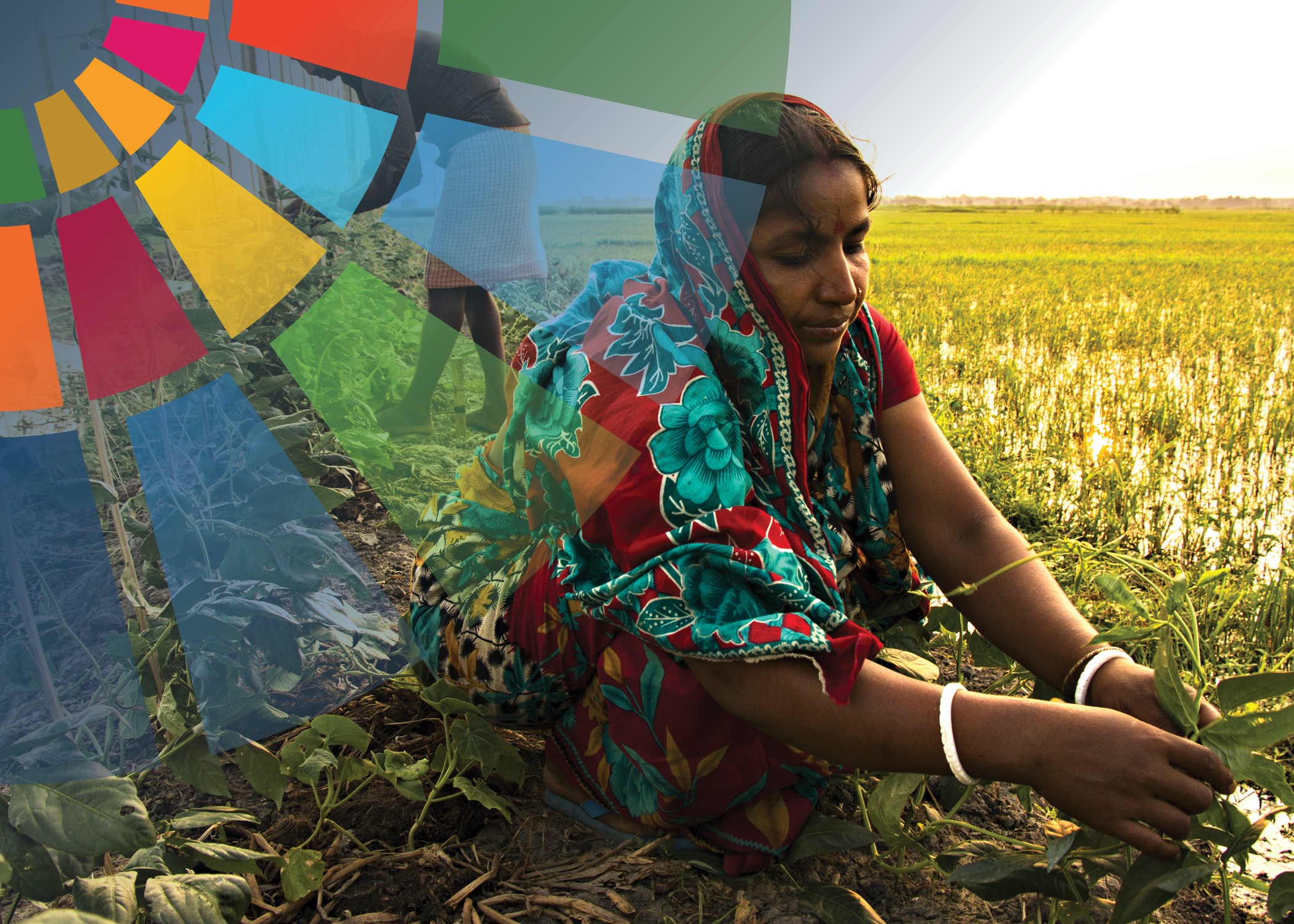A large volume of research has been produced in the last few decades on the roles that women play in food systems, the constraints they face, and how they can play a key role in agricultural transformation. There is evidence that achieving gender equality and women’s empowerment in food systems will result in better food security and nutrition, and more just, resilient, and sustainable food systems for all. To assess the state of knowledge on these important questions, we conducted a review of the evidence on key gender issues, assessing consensus and gaps in the literature regarding what works to achieve gender just and equitable food systems.
The review, published by the UN Food Systems Summit Scientific Group, looked at 16 existing systematic reviews of research, plus an additional 198 peer-reviewed articles focused on low- and middle-income countries.
Women are key actors in every part of food systems, as farmers, processors, wage-workers, traders, and consumers. Despite their importance, the evidence shows that women’s contributions are often undervalued, unpaid, and overlooked. This issue is also reflected in research that does not measure empowerment outcomes or examine how intervention strategies affect women’s decision-making power. The lack of evidence on gender not only results in poor empowerment outcomes for women; it also makes programs less effective and leads to inefficient use of funds and food systems that are not equitable.
What the evidence shows
There is a well-established body of evidence about gender differentiated access to or ownership of assets (e.g., land or machinery), information services, and credit. Many scholars agree that lack of access to these important resources can constrain women’s abilities to adapt to and recover from shocks and stress events. This is especially important as climate change makes weather patterns less predictable and contributes to shocks like drought. There is also growing evidence that participation in farmer groups or other networks and collectives can improve women’s access to key resources, and is associated with greater adoption of climate-smart agricultural practices.
Obligations on women’s time shape access to information. Gender norms around unpaid labor responsibilities, such as childcare, restrict women’s ability to seek out information and participate in agricultural extension. These considerations are crucially important for the success of innovations to transform food systems.
Another area of consensus in the literature is women’s vulnerability to food and nutrition insecurity. Many studies have found that women occupy lower-paying wage positions, earn smaller incomes, and have less control over household finances than men. This means that they are less able to afford a nutritious diet. Additionally, purchasing food requires frequent travel to markets, especially for nutrient-dense, perishable foods like fruit, milk, and vegetables that are difficult to transport and store. This is particularly challenging for women in rural and remote areas. Thus, gender norms that restrict women’s freedom of movement can greatly influence household nutrition and food security outcomes. Several studies have found that physical distance to markets significantly impacts food security outcomes for female-headed households.
Finally, many scholars agree that improving women’s agency or decision-making power at the individual, household, and community levels can lead to increased agricultural productivity, adoption of climate-smart practices and technologies, and improved household nutritional outcomes. However, gender norms and structural biases can limit women’s influence and voice.
Research directions moving forward
What kind of research is needed to move gender equality forward? The review identified gaps in the literature where future research could make food systems more gender-just and inclusive.
Much of the literature on gender focuses on social norms that are specific to local contexts. More targeted research is needed to identify patterns and pathways to advance women’s empowerment—what works and what doesn’t across different geographies. The outcome of such research would be clear typologies that link successful interventions and recommendations to specific gender norms.
Women’s decision-making power is a cross-cutting issue, but is often studied at the individual, household or community level. It remains understudied at the level of food systems. Research at this level would focus on strategies to increase women’s voices and preferences in agricultural solutions, including technology design, extension, and adoption, and in setting research and policy priorities for food systems transformation
While there have been numerous studies focused on gender and time use, very few of them look at women’s decision-making power over how they spend their time. Simply measuring time use patterns is important, but more evidence on how time use is decided and managed is needed to support women’s ability to make strategic choices in food systems. IFPRI researchers are spearheading this effort with recent publications on time use and agency.
There is also the link between women’s mental health and household nutrition. While the evidence on this is mixed and limited, some studies suggest that maternal depression can lessen household food security, and interventions that improve food security can also improve mental health. More research is needed on these psychosocial indicators of women’s health and the links between mental health and food insecurity. Another area in need of more study is intersectionality and how different identifies compound marginalization of different actors, including women in food systems.
Finally, gender-based violence is a systematic barrier for women’s empowerment in food systems. While there is extensive research on this in the health literature, evidence linking violence to food systems outcomes is limited. In order to start building this evidence, in 2021, IFPRI researchers added indicators on sexual harassment and violence against women to the Women’s Empowerment in Agriculture Index for Market Inclusion (pro-WEAI+MI).
For more on the state of the literature on women’s empowerment in food systems, please read the full publication.
Jemimah Njuki is IFPRI’s Director for Africa and Custodian of the UN Food Systems Summit Gender Equality and Women’s Empowerment Cross-Cutting Change Lever; Hazel Malapit is a Senior Research Coordinator with IFPRI’s Poverty, Health, and Nutrition Division (PHND); Sarah Eissler is an independent consultant; Jessica Wallach is an IFPRI Communications Intern and a Master’s student in International Agricultural Development at the University of California, Davis.







